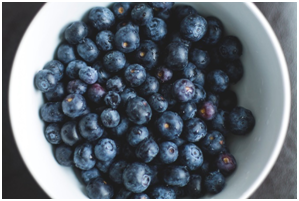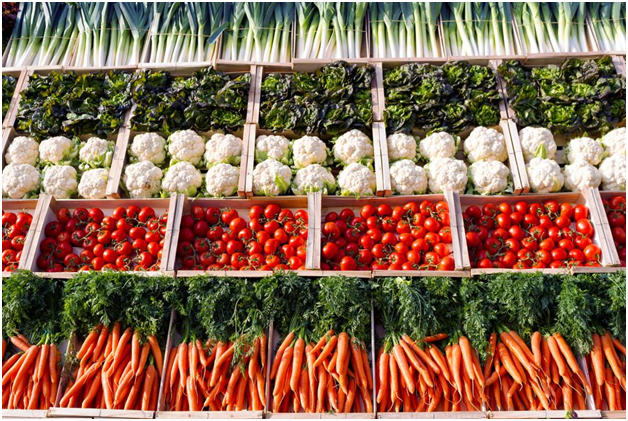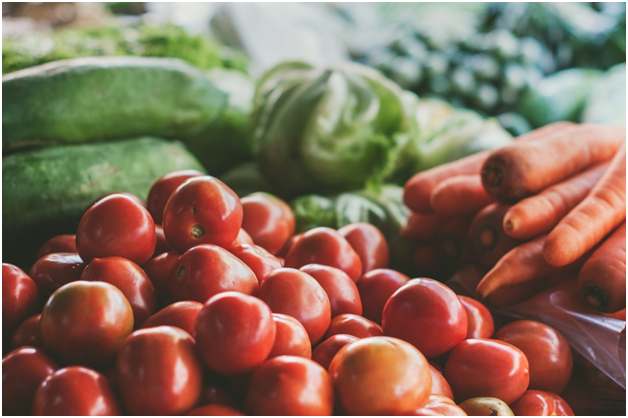Author Archive
Top Weight-Loss Friendly Foods To Add To Your Diet
September 02 2016

According a report published in JAMA Internal Medicine, more than one-third of Americans are obese and overweight. Obesity is a common condition that causes life-threatening health issues, including heart disease and type 2 diabetes. Continue reading
Gluten Allergy – What To Avoid And What To Eat
August 29 2016

Are you allergic to gluten? Although “gluten-free diet” is the latest buzz word, not many people know what‘gluten’ really is.
Gluten is a type of protein found in certain grains, wheat, rye and barley. It consists of proteins known as gliadin and gluten in, which can be detrimental to some people’s immune system. Continue reading
Most Health Issues Are Related To Food – That Means There IS HOPE You Can Cure Your Problem!
August 01 2016
In today’s fast-paced life, we often don’t think about the true root cause of most of our health problems. More often than not it is the food we eat – no matter what conventional health care professionals tell you… 
WHAT YOU EAT MATTERS AND IT HAS INCREDIBLE POWER TO CURE YOU OF THE WORST HEALTH CONDITIONS!
Recent studies have linked the food we eat to leading chronic diseases. What it also means is that the food we eat can also have a profound effect on our health!
Can Even Cancer Be Prevented Or In Some Cases Even Cured With The Food We Eat?
Yes it can. Just think about it! According to recent statistics, 1 in 2 men and 1 in 3 women is expected to be diagnosed with cancer in their lifetime. Cancer is the dreaded word none of us want to hear from our doctors, but it’s just all too common.
Conventional medicine will have you believe that the front line approach is radiation, chemo, and surgery. The system is in place and will have you believe you have no control. Although success  rates of some cancer treatments have improved, the success rate of many forms of cancer have not improved significantly over the years, and the conventional treatment for the other forms of cancer is often just as bad as the disease, due to the suffering induced from the treatment itself.
rates of some cancer treatments have improved, the success rate of many forms of cancer have not improved significantly over the years, and the conventional treatment for the other forms of cancer is often just as bad as the disease, due to the suffering induced from the treatment itself.
Doctors have good intentions, but are unaware of the effectiveness of alternative treatment choices. To learn more about alternative tried and proven cancer treatment alternatives please visit our trusted friends at The Truth About Cancer.
It turns out people are getting cured successfully and PERMANANTLY using natural methods that use food as a primary key form of medicine. In most cases, we bring on our own disease due to our lifestyle and in very large part due to what we eat.
Did you know recent studies have shown:
- Eating just 10 grams or more per day of button mushrooms per day reduced breast cancer rates by about 64%! And by also drinking green tea reduced breast cancer rates by up to 89%! The results are incredible.
- Berries contain ellagic acid and have been shown in lab studies to reduce esophageal cancer 30-70% and colon cancer rates by 80%! The research is encouraging to say the least.
- Many patients have reversed their cancer diagnosis by following specifically designed diets, such as the well-established Gerson Therapy alone, primarily based on juicing and using natural nutrients to heal ones’ body.
Food has the power to heal us, IF we choose to use food as our medicine. We encourage you to be your own body’s “best doctor” and search for the truth about how to reverse and prevent cancer naturally – your doctor and/or the medical establishment are unaware that natural and effective treatments DO EXIST RIGHT NOW to cure even stage 4 cancer in some cases and this degree of cancer is typically thought to be incurable.
What About Heart Disease? Can It Be Cured Without Surgery?
YES – Absolutely! A large part of reversing heart conditions is related to our lifestyle and in particular our diet.
Eat the right food and follow a healthy lifestyle and you may not need surgery, even if your surgeon told you that it’s imperative and urgent! A bold and profound statement, but read on…
Dr. Julian Whitakar is the author of author of Reversing Heart Disease, Reversing Diabetes, and Reversing Hypertension and founder / past president of the American Preventive Medical Association. He states “bypass surgery does not prevent heart attacks or save lives in close to 90 percent of people who receive it”, a 1977 study showed no benefits, though it’s still blindly being done today!
MUCH safer alternative methods exist, and a key part of it is diet and lifestyle.
Let’s stop and consider safer common sense options, before we fall victims of the routine and established practice to cut first, and consider “alternative” approaches second. Freedom of choice applies to choices we make when it comes to our health. Consider alternatives when a conventional medical treatment is offered. Alternative treatments do exist and often the results are profound and superior to the conventional options. Educating ourselves and finding a practitioner we can trust can save our life.
Will You Consider Your Food As Your Primary Medicine?
Heart disease and cancer are the top two causes of death in America today, accounting for over 46% of all deaths!
 Our body has the astonishing power to renew itself given the right fuel. Imagine what you could do by simple eating better…
Our body has the astonishing power to renew itself given the right fuel. Imagine what you could do by simple eating better…
Think about it: What are you fueling your body with each and every day?
Start with whole foods that are made of raw ingredients and avoid unhealthy packaged and processed foods. That means:
- Include lots fresh vegetables in your diet
- Eat organic and avoid genetically modified foods (GMO)
- Avoid boxed and packaged foods
- Avoid processed meat (that studies now show as linked to causing cancer)
- Eliminate entirely all artificial sweeteners (extremely unhealthy and linked to many diseases and obesity)
That’s just a starting point to get you on the right track, but it can be life changing if you decide to commit to it.
Planning ahead gives you a major advantage and ensures the food you are putting on your plate is beneficial to your health.
MealEasy® meal plans all follow natural health principles, so whether you want to generally improve health, lose weight, improve your heart health, or combat diabetes, there is something for everyone. Check out our heart healthy, weight maintenance, balanced and pre-diabetes meal plans today.
Diet And Diabetes – Is There A Connection?
July 28 2016
Diabetes is a long-term medical condition that has been on the rise in recent years. The Journal of the American Medical Association states that more than half of U.S. adults have diabetes or pre-diabetes. And even though its causes may vary, a poor diet is one of the causes of diabetes.
Unhealthy dietary choices cause obesity, which increases the risk for diabetes. Consuming unhealthy calories,can increase your body’s resistant to insulin. This causes irregularity in the blood sugar level.
It is, therefore, imperative to adopt a well-balanced diet to prevent or control diabetes. Whether you have pre diabetes or type 2 diabetes, here are simple ways to embrace a healthy diet:
What constitutes a healthy diet
A healthy diet entails a variety of foods. The key is to eat smarter. Try to consume a wide range of food items that are full of quality nutrients. Last, but not least, keep an eye on your portion size.
Vegetables
Increase your consumption of raw or cooked vegetables. Vegetables consist of minerals, vitamins, fiber and phytochemicals. They also have few calories and carbohydrate. The best choices include non-starchy veggies, such as carrots, celery and cucumber. Most of these items are available all year around.
Similarly, green vegetables have been associated with decreasing the risk of developing type 2 diabetes.
Fiber-rich foods
Fiber controls weight and blood sugar level. Thus, it is essential to prevent or control diabetes. You can choose from a variety of fiber-rich foods, such as lentils, beans and artichokes.
Protein
A balanced diet includes protein. But choose your protein carefully. This is because some protein sources have a lot of saturated fat. Your best choices are fish, plant-based protein, cheese and eggs, and chicken and other poultry. Remember to consider your portion size.
Sweets, carbs and fats
The human body needs carbs, whether you have diabetes or not. Carbohydrates affect the blood sugar level. They create glucose that enters the bloodstream.
The type and quantity of carbohydrates you choose will have an impact on your diabetic condition. Stick to high-fiber complex carbohydrates. Since they are digested slowly, they prevent your body from producing too much insulin.Moreover, limit your consumption of refined carbohydrates –pasta, rice, soda, packaged meals, among many others.
When it comes to fat and sweets, you don’t have to eliminate them entirely from your diet. Instead, have small portions of sweets or better yet choose healthier natural sweeteners. Furthermore, consume less unhealthy fats – saturated and Tran’s fats. Instead, focus on Omega-3 fatty acids and monounsaturated fats – almonds, olive oil and more.
If you are looking for more information on a pre-diabetes meal plan, consider subscribing to our program and get access to quick, easy recipes for diabetes prevention.
5 Tips To Eat Healthy On A Budget
July 27 2016
Despite its unlimited benefits, healthy food is considered to be more expensive. According to a study by Cambridge University, healthy food costs three times as much as consuming unhealthy food.
So should we use this to justify eating the “unhealthy” food that is often not even fit for human consumption? We also need to ask ourselves if our health is worth the savings and then, should we be even comparing? There are huge savings to be realized by making our own meals, which by far outweighs the “additional” cost for the “healthy” food.
Let’s look at it this way: Would you put cheap oil in your car’s engine to save $20.00, if you knew it could cost you $600 in repairs down the road? And here we are talking about our health, not a car engine.
If money is still an issue, there are plenty of practical ways to reduce expenses.
Here are 5 tips that can help you eat well-balanced foods on a budget:
Buy seasonal produce
Purchase seasonal food to save money. Not only do seasonal fruits and vegetables taste better, they often cost less than off-season items. Since seasonal produce is in abundant supply, it costs less than foods that are out of season.It’s a good idea to stock up on these items.
Buy in bulk
Another great way to save money and time is to purchase food in bulk. Although bulk purchases entail a hefty cost, it really saves money in the long run.
Buy seasonal produce and grains in bulk, whenever possible. Make sure to store them properly in air-tight containers, so that they don’t go bad.
Similarly, you can purchase large quantities of meat and then freeze or use smaller portions for use later on.
Use leftovers
Try to cook large portions. If you are left with leftovers, don’t discard anything. You can reuse dinner leftovers as a scrumptious homemade lunch. Furthermore, you won’t have to make multiple meals throughout the day.
You can even freeze your dinner leftovers and then reheat them later on as convenient lunches or dinners. To help you with this, MealEasy meal plans show you which meals are freezable.
Eat more beans and whole grains
Try to eat more beans and whole grains than meat. Black beans are packed with folic acid, fiber and potassium. They cost $0.30 per 1/2 cup or $1.50 per can. Moreover, quinoa and brown rice are delicious yet economical healthy food items. Purchase these items in bulk. You can use them immediately or store them for later use.
Plan and prep meals
Most importantly, plan your meals ahead of time, to help you not only to balance your nutrition, but also to balance your budget.
Planning ahead not only gives peace of mind knowing what your next meal is going to be,but by having a shopping list generated as part of the plan,you will avoid spontaneous purchases that can add to the cost of groceries,for food you don’t really need.
Making homemade meals has so many benefits vs eating out, as described in this informative guide.
For the most efficient online meal planner, we have got you covered. MealEasy provides an array of low-cost meal plans to help families save on groceries and the cost of unhealthy eating. To keep your costs down, MealEasy indicates which meals are lowest cost, while ensuring they are healthy. In addition, the online portal features other meal plans, which include heart-healthy meal plans, and vegetarian meal plans – among others.
5 Tips For Planning And Sticking To A Healthy Diet
July 01 2016
We all know the countless benefits of eating healthy. A well-balanced diet is imperative to losing weight. But that’s not all.
A nutritious diet is the secret to glowing, radiant skin. Not to mention, consuming a balanced diet that is rich in vitamins, minerals and nutrients boosts brain and heart function, and prevents diabetes.
What you eat has a substantial impact on your health. In fact, your food choices can even change your outlook on life. If you want to look and feel good, it’s crucial to adopt a healthy, balanced dietary routine. In other words, focus on fruits and veggies, low-fat dairy, protein, and good fats.
But planning and sticking to a balanced diet is easier said than done. In order to assist you, here are 5 tips you should follow:
Simplify your meals
Don’t obsess over calories at this point. Instead, choose foods and drinks based on freshness and variety. Eating a variety of foods will ensure that you get all nutrients and vitamins. Moreover, it will limit your exposure to harmful substances in a particular food.
Similarly, opt for fresh ingredients. Avoid processed food as they contain toxic ingredients that are detrimental to your health.
 Plan and prepare meals in advance
Plan and prepare meals in advance
Develop a workable game plan. Be realistic. Plan and prepare your meals accordingly.
Take advantage of MealEasy’s eating plans to cook scrumptious, yet wholesome, meals on time and within your budget.
You can use MealEasy’s balanced meal plan to search for recipes, track nutritional values, shop for ingredients and prepare meals based on your individual preferences and health and dietary goals.
Rotate your meals
Alongside meal planning, try to mix up your meals to prevent boredom. Also remember to experiment with a variety of healthy ingredients.
For example, if you want to add greens to your meal, think beyond lettuce or broccoli. There are plenty of other options to choose from, such as Chinese cabbage and Kale.
Aim for balance
Have three healthy meals every day. Healthy snacks are just as important. Remember to have breakfast to boost your metabolism and energy.
In addition, avoid eating at night. Aim to eat dinner early for proper digestion of food. Most importantly, listen to your emotions and body. Be mindful of what you eat; don’t feed your feelings.
Have smaller portions and take time to enjoy your meal. Stop eating when you feel full.
Practice moderation
Last, but not least, eat in moderation. Don’t have too little or too much of a certain food. Even if it’s sweets, have smaller portion to satisfy your craving. Don’t ban any single food.
Follow these simple tips to live a happy, healthy life!
Top 5 Tips For A Gluten-Free Diet
June 29 2016
Do you have gluten sensitivity? You’re not alone. Statistically speaking, nearly 18 million Americans are allergic to gluten. In addition to gluten sensitivity, many individuals have adopted a gluten-free dietary routine because of its health benefits.
Needless to say, a gluten-free diet has become a popular trend today. The demand for gluten-free foods is surging substantially. According to Statista, the market is projected to be valued at $23.9 billion by 2020.
In addition to gluten intolerance, many individuals have adopted a gluten-free dietary routine because of its health benefits.
But is this diet really beneficial? Read on to find out …
What is gluten?
 To put it simply, gluten is a special type of protein that is present in certain grains, wheat, rye and barley. Its main purpose is to keep food elasticity intact during the production phase.
To put it simply, gluten is a special type of protein that is present in certain grains, wheat, rye and barley. Its main purpose is to keep food elasticity intact during the production phase.
Gluten consists of gliadin (a prolam in protein) and gluten in (a glutel in protein). Gluten is harmful for certain individuals due to their body’s inability to digest gluten properly.
Consuming gluten can cause celiac disease. Some symptoms of celiac disease include diarrhea, change in appetite, bloating or gas, nausea, skin rashes, fatigue and much more.
What comprises a gluten-free diet?
A gluten-free diet excludes the protein gluten. You should avoid consuming foods that contain rye, barley, wheat and triticale. Focus on fresh fruits and veggies, beans, low-fat dairy, fresh eggs, lean meat and fish.
That being said, sticking to a gluten-free diet can be extremely frustrating. You need to prepare yourself to achieve successful results.
Here are some effective tips to help you limit or take out gluten from your meals:
Always read food labels
When you shop, check out each food item’s label to assess the ingredients used.
For example, if you want to buy cereal, look for gluten in the list of ingredients.
Some items are labeled gluten-free for your convenience.
Keep yourself informed
Educate yourself in the pros and cons of a gluten-free diet. Start searching for information online.
Plan your meals appropriately
Plan your meals to make your life simpler. Try to keep a stock of ingredients on hand for all three meals – breakfast, lunch and dinner, along with snacks.
As a rule, cook in quantities and store carefully. If you have leftovers, freeze them.
Vary your diet
Add variety to your diet. Mix things up. Otherwise, you may get sick of a gluten-free diet quickly.
Moreover, incorporate an array of gluten-free foods into your diet to obtain essential vitamins and nutrients.
Join MealEasy
Check out the many delicious, healthy gluten-free recipes on MealEasy. With over 900 gluten-free meal ideas, Meal Easy makes gluten-free meals planning simpler and affordable.
5 Commonly Asked Questions About Vegetarian Diet
May 28 2016
Adopting a vegetarian diet has gained much attention in recent years. Whether it is animal welfare or health concerns, an increasing number of Americans are embracing a vegetarian diet. Continue reading
Is Your Diet the Real Risk for Your Heart?
May 26 2016
Heart disease is the most common cause of death in the country today. According to the Center for Disease Control and Prevention, almost 610,000 people die from a heart condition every year. Continue reading
At Risk of Diabetes? Make these Dietary Changes!
May 02 2016
Whether you are at high risk of type 2 diabetes or have been diagnosed with pre-diabetes, prevention is a big challenge. Given the increasing instances of the condition, diabetes prevention should be your top priority, especially when you are at high risk due to being overweight or family history. Continue reading






